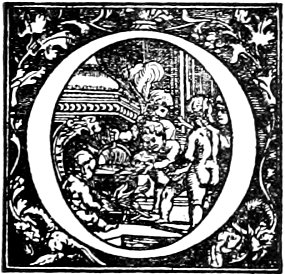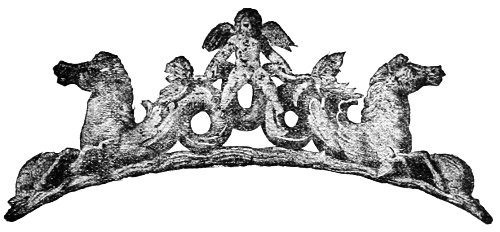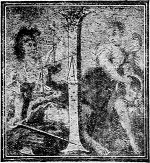

And. Vesalius
ANDREAS
VESALIUS
THE
Reformer of Anatomy
BY
JAMES MOORES BALL, M. D.

SAINT LOUIS
MEDICAL SCIENCE PRESS
MDCCCCX
Copyrighted, 1910
By James Moores Ball
All rights reserved
TO THE MEMORY
OF THOSE ILLUSTRIOUS MEN
WHO
OFTEN UNDER ADVERSE CIRCUMSTANCES
AND
SOMETIMES IN DANGER OF DEATH
SUCCEEDED IN UNRAVELLING THE MYSTERIES
OF THE STRUCTURE OF THE HUMAN BODY,
TO THE FATHERS OF ANATOMY
AND
TO THE ARTIST-ANATOMISTS
THIS BOOK
IS DEDICATED

PREFACE

In the annals of themedical profession the name ofAndreas Vesalius of Brussels holdsa place second to none. Everyphysician has heard of him, yetfew know the details of his life,the circumstances under whichhis labors were carried out, theextent of those labors, or their far-reachinginfluence upon the progress of anatomy, physiologyand surgery. Comparatively few physicians haveseen his works; and fewer still have read them. Thereformation which he inaugurated in anatomy, and incidentallyin other branches of medical science, has leftonly a dim impress upon the minds of the busy, science-lovingphysicians of the nineteenth and twentieth centuries.That so little should be known about him is not surprising,since his writings were in Latin and were publishedprior to the middle of the sixteenth century. His books,IXwhich at one time were in the hands of all the scientificphysicians of Europe, are now rarely encountered beyondthe walls of the great medical libraries of the world. Theyare among the incunabula of the medical literature. ThatEnglish-speaking physicians know little of Vesalian literatureis due to the fact that no extensive biography of thegreat anatomist has appeared in our language. Most of theVesalian literature which has been written by English andAmerican authors has been in the form of brief articlesfor the medical press; these oftentimes have been incorrectand unillustrated. Perhaps the best example of this classis the article by Mr. Henry Morley which appeared originallyin Fraser’s Magazine, in 1853, and later was publishedin his Clement Marot and Other Studies, in 1871.The chief data for Vesalius’s biography are to be foundin his own writings, in the archives of the Universities inwhich he taught, and in the controversia